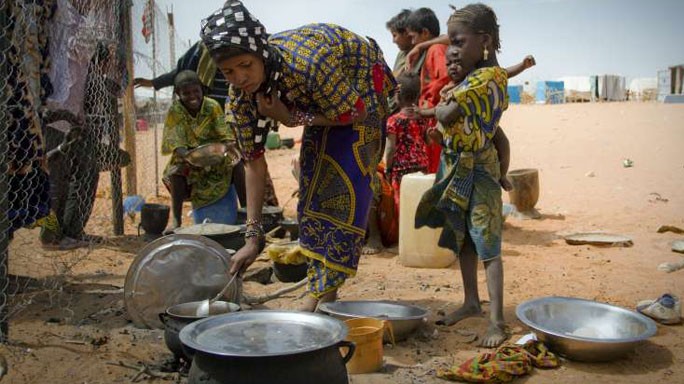Slavery is a matter of hereditary caste in traditional Saharan and Sahelian cultures. Because his mother was an unpaid domestic laborer, Ahmet Falla was preordained for the same fate. There's a family in Mauritania that considers him their property.
"If I'd stayed in Mauritania, I'd have had to work without pay for my whole life," Falla said in French. "I have no rights down there."
That's why Falla is in Germany, living with two other Africans as an asylum applicant in a government-provided apartment in Tutow, a small town an hour's drive from the northeastern coast.
A world away
The Islamic Republic of Mauritania (pictured) is on Africa's west coast, south of Morocco's Western Sahara province and north of Senegal. The country is three times the size of Germany in terms of land area, but has only 3.5 million people. It's mostly desert.
"If I returned to Mauritania, the family that thinks of me as their property might kill me as a punishment for my having fled," Falla said. "I'd rather kill himself than go back."
Falla's prospects for being granted asylum in Germany are slim. Slavery was officially abolished in Mauritania in 1981, and holding slaves was criminalized in 2007. Officially, slavery no longer exists.
See more:
DW





